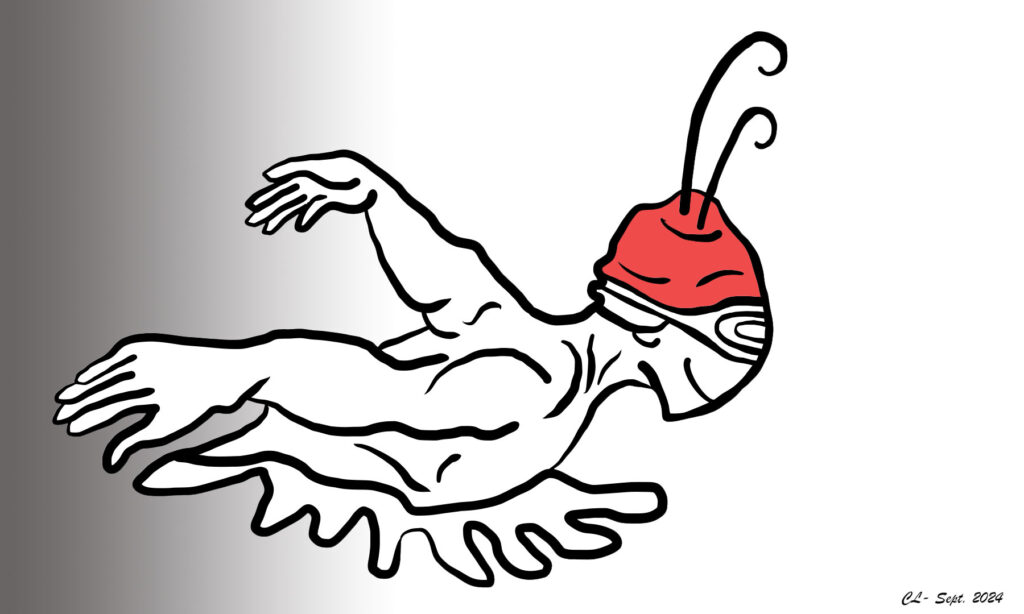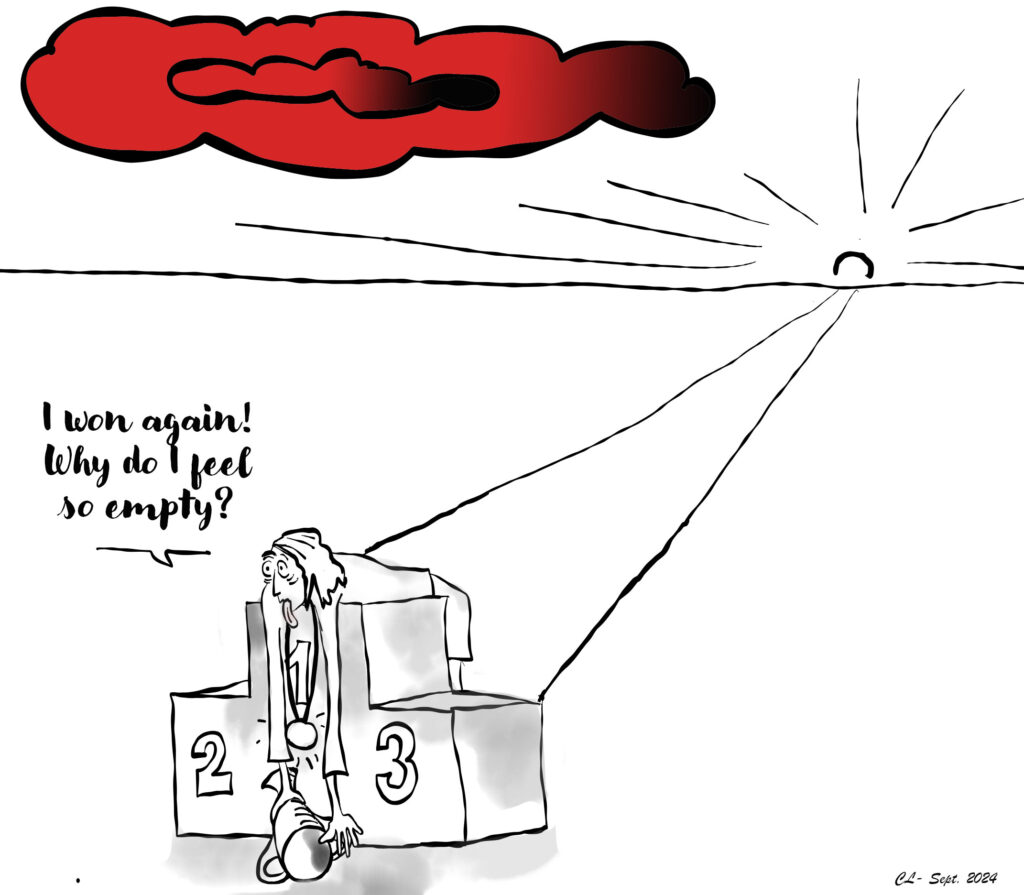Autumn is just around the corner. Yet, I’m still reflecting on the vibrant atmosphere, unifying spirit, and incredible performances of the summer Olympics and Paralympics in Paris.
To clarify, I’m just an occasional sports enthusiast. I usually watch these events through the lens of my deeper interest in human potential—how individuals and teams can flourish.
Like many people, I was captivated by the 20-year-old French swimming phenomenon, Léon Marchand, who dazzled the world with his three gold medals, humility, and effortless cool.

Léon Marchand has been open about how he transformed his approach to performance—and ultimately to success—through mental preparation with the help of a mental coach. This approach intrigued me.
In this short interview, he describes how he transcended his fear of failure and disappointing others by focusing on self-awareness and developing self-love. He talks about sending positive energy to his body and nurturing curiosity and pleasure, before and during competition. With a winning smile, he’s asserting, “When I’m having fun, I can tap into my full potential.”
Wow. If you’re familiar with traditional French mentality, it’s a bit of a cultural shock to hear a high-level French athlete openly share about how his journey of self-love has enhanced his performance.
Decades ago, such discourse in French mainstream media would likely have been dismissed as unscientific and overly ‘New Age’ – an aberration to a Cartesian mindset, which tends to prioritize rationality and intellectual intelligence over emotional and intuitive intelligences, viewing the mind and body as separate entities with little communication between the two..
That’s part of why I moved to the United States where the Human Potential Movement and humanistic psychology were thriving. I was driven by a deep passion to help others fulfill their potential, having reclaimed my own and believing that, with the right skills and conditions, it’s possible for all of us.
Léon Marchand’s transformation reflects a profound shift in motivation – from performing driven by the desire to please others and avoid failure, to performing driven by the desire to fulfill himself.
In other words, a shift from extrinsic to intrinsic motivation.

Intrinsic motivations (or intrinsic values) are internal drivers or desires that come from within us rather than from external pressure or rewards. They are related to personal satisfaction, interest, and a sense of personal fulfillment. Unlike extrinsic motivations, which are driven by external rewards like money or recognition, intrinsic motivations are about doing something for its own sake because it is inherently interesting or enjoyable.
Studies have consistently shown that when we engage in activities for the positive feelings they evoke within us, it leads to optimal performance – whether in sport or business.
While the concept of intrinsic motivation is widely accepted, it remains largely unintegrated into our cultural norms.
Fifteen years ago, Daniel Pink in his book Drive, highlighted the mismatch between what the science of motivation knew, and what business was actually doing.
A system of motivations based on reward and punishment (Motivation 2.0 says Daniel Pink[1]) is mainly ineffective; it stifles engagement, creativity and fulfillment – if it doesn’t outright crush them. What we need is a new operating system (Motivation 3.0) that aligns with our intrinsic drive.
To truly flourish, people need autonomy— to direct their own lives, task, time, technique or team. They also need mastery – to get better and better at something that matters to them. And they need purpose – a sense of contributing to something greater and more enduring than themselves.
I’ve personally experienced the truth of these three needs in my own journey to create a fulfilling life. It was eye-opening to recognize the tension I felt around my need for autonomy and to find ways to honor it.
Yet, when my 22 year-daughter comes home to rest and reflect on her next chapter after successfully graduating with her master’s degree, I can’t help but tell her what to do — who to connect with, when to do what, and even how to organize her room and schedule. Her unappreciative response is clear: “Mom, back off!”
When our fears kick in – ‘Am I a competent mother? Loveable? Will my daughter be equipped for this competitive world?’, it’s difficult to stick to what we know about the science of motivation.
Our society’s overall motivational system is still largely driven by rewards, punishments and hierarchy. In this framework, our deep conditioning to prove our self-worth makes it hard to step off the treadmill of extrinsic motivations.
I know leaders who are deeply passionate about their work but find themselves trapped in the relentless cycle of performing and staying relevant. Some are willing to recalibrate their role and rebalance their lives for more joy and satisfaction, with less stress and worry. The shift often requires letting go of ‘ego-candies’— the short term and self-serving benefits tied to extrinsic motivations– or making what seem like significant sacrifices in terms of status, power and money.

Is it possible to achieve ambitious goals with high standards, a sense of well-being and personal fulfilment all at once in life? I think so. Leon Marchand knows so!
We need to continue building this new operating system (Motivation 3.0) across schools, workplaces and homes — where exploring our intrinsic motivations become the norm and are an integral part of finding our ‘Soul Work’ – our unique and compassionate contribution to the world.
Does it sound unscientific and overly ‘New Age’? We’ll see in twenty years!
*
PS: There are plenty of books and processes about mining intrinsic motivations. Let me know if you need guidance. Also, I just ordered Hidden Potential from Adam Grant. There is more to discover about unleashing human potential than any of us realize! Yay!
[1] Motivation 1.0 is about our biological survival







